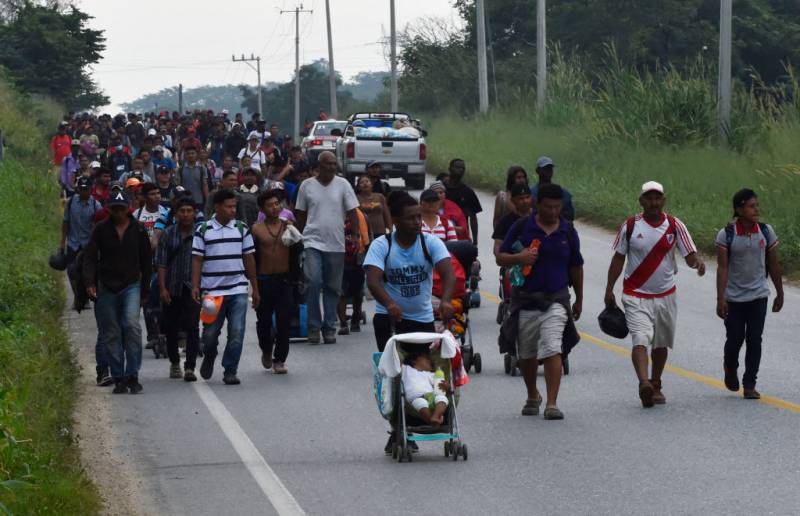The dual announcements follow intense discussions between the U.S. and Mexico after U.S. District Judge Matthew Kacsmaryk, a Trump appointee based in Amarillo, Texas, ordered the policy reinstated, subject to Mexico's participation.
The policy's new iteration, outlined in a briefing for reporters and a court filing Thursday, promises major additions and changes that Mexico demanded.
Adult migrants subject to the policy will get the Johnson & Johnson COVID-19 vaccine, which requires only one shot. Children who are eligible under U.S. guidelines will get the Pfizer shot, with second shots when they come to the U.S. for their first hearings.
The U.S. will try to complete cases within 180 days, in response to Mexico's concerns that they will languish. The U.S. Justice Department is assigning 22 immigration judges to work on these cases exclusively.
U.S. authorities will ask migrants if they fear being returned to Mexico instead of relying on them to raise concerns unprompted. If the migrants express fear, they will be screened and have 24 hours to find an attorney or a representative.
The Biden administration is working to ensure migrants' safety when they travel to and from court, including within Mexico. Some migrants returned from Eagle Pass, Laredo and Brownsville, which border Mexican cities with particularly high rates of violent crime, will be moved to locations with less violent crime further inside Mexico.
The policy will apply to migrants from Western Hemisphere countries. U.S. officials haven't said how many will be processed daily.
Migrants will have an opportunity to meet with attorneys before each hearing. The U.S. State Department is working with Mexico on locations for video and phone access to attorneys in the U.S.
The changes mirror many conditions that Mexico laid out last week.
"Vulnerable" people will be exempt, including unaccompanied children, pregnant people, physically or mentally ill people, older people, Indigenous people and members of the LGBTQ+ community.
“The Mexican government reaffirms its commitment to migrant rights as well as to safe, orderly, regulated migration,” Mexico’s foreign relations secretary said in a statement Thursday, confirming that the country accepted the Biden administration's changes and additions.
Blas Nuñez-Neto, acting U.S. homeland security assistant secretary for border and immigration policy, said in the court filing that the administration shares Mexico's concerns.
Mexico also is seeking money from the U.S. for shelters and other organizations to substantially increase support for migrants waiting in Mexico for their U.S. asylum hearings.
The office of Texas Attorney General Ken Paxton didn't immediately respond to a request for comment. Last month, the judge denied his request to declare that the Biden administration was flouting the court order.
Paxton and Missouri Attorney General Eric Schmitt urged the judge to force the federal government “to live up to their duties by following the blueprint they previously followed.”
Many U.S.-based legal aid groups that have represented asylum-seekers waiting in Mexico say they will no longer take such cases, raising questions about how the U.S. can satisfy Mexico’s insistence on better access to counsel. But administration officials say they believe there are enough other lawyers who will represent asylum-seekers sent back to Mexico.
Many immigration advocates say the policy is beyond repair.
“The ‘Remain in Mexico’ policy was a humanitarian disaster when it was first implemented, and it is doomed to be so again,” said Eleanor Acer, senior director for refugee protection at Human Rights First, which has documented violence against asylum-seekers while they were waiting in Mexico.
The U.N. refugee agency also renewed longstanding concerns on migrant safety and rights.
“The announced adjustments to the policy are not sufficient to address these fundamental concerns,” the U.N. high commissioner for refugees said in a statement.

